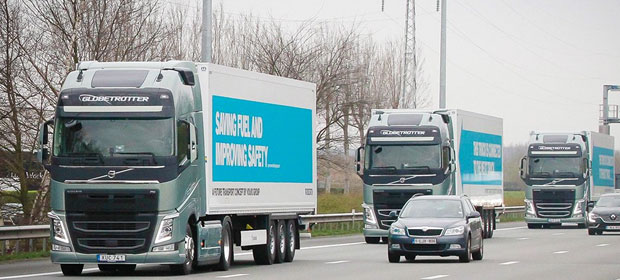Some logistics and mobility industry heavyweights have formed a group committed to improving the lives and opportunities of working Americans through adoption of autonomous vehicles.
The roster of the Partnership for Transportation Innovation and Opportunity includes the American Trucking Associations, Daimler, FedEx, Ford, Lyft, Toyota Motor North America, Uber and Waymo.
“Our autonomous vehicle future will bring many significant benefits for society, but we also must remember that it may change the way many of us work,” said PTIO Executive Director Maureen Westphal.
“Different career paths, entirely new occupations, and greater efficiencies in the transportation sector, are just a few of the changes we may see,” she told TechNewsWorld.
“At the same time, and as we’ve seen with the adoption of any new technology, autonomous vehicles may alter some aspects of certain occupations and may reduce the need for others over time,” Westphal pointed out. “With all those issues in mind, the companies and associations leading PTIO intend to initiate an open conversation about jobs, career paths, and the other transitions that may result from the adoption of autonomous vehicles.”
Lofty Goals
At the outset, PTIO has three broad goals:
- Identify research, programs and policy solutions to help expand the opportunities autonomous vehicles can create for our workforce.
- Focus on easing the transitions of any affected occupations into new and meaningful career paths, and champion new occupations in the new economy.
- Focus on the role public policy can play in helping the entire workforce benefit from autonomous vehicle technology.
Where Is Labor?
Missing from PTIO’s roster is any representation from labor.
“There are certainly limits to the efficacy of a group that’s trying to put out policy when organizations representing drivers aren’t included,” noted Kara Deniz, a spokesperson for the International Brotherhood of Teamsters.
“You wouldn’t have a working group about school teachers or nurses or any other profession and not have those people included,” she told TechNewsWorld, “so why should drivers be any different?”
Although this kind of group is needed, PTIO’s composition is concerning, said John Kearney, CEO of Advanced Training Systems.
“This particular group is composed of people whose best interest is served by having a result that promotes having autonomous operating vehicles,” he told TechNewsWorld. “We need the study group to have independent members so we can depend on the outcome.”
Impact on Unskilled Labor
Automating truck driving could impact millions of workers in relatively unskilled, high-paying jobs.
“The problem with autonomous vehicles is that the industry it’s disrupting employs nearly 4 million people. That’s equivalent to the entire city of Los Angeles,” said Eric Yaverbaum, a technology commentator and contributor to Fox News Tech Take.
“Truck driving is a low-skill job that is pretty easily accessible, meaning its automation is going to make it extremely difficult for existing drivers to find comparable employment, so the economic effects of this are going to fan out well beyond the immediate industry impact,” he told TechNewsWorld.
“It’s effectively removing a key source of income for a large chunk of the United States from accessibility,” Yaverbaum continued, “and will certainly throw families and communities all over the country into economic chaos for some time.”
Threat to Jobs
Automated vehicles can threaten jobs, but the risk is lower for freight, because truck drivers do more than just drive trucks, maintained Richard Wallace, vice president for transportation systems analysis at the Center for Automotive Research.
“It’s hard to imagine something not coming up during the course of a day for a delivery service that doesn’t require human intervention,” he told TechNewsWorld.
“For a long time, we’re going to have drivers as backups for automated systems, but it could be a lower-paid job. “The risk is there, but it’s at least 10 years away — maybe longer,” Wallace said.
“I’m much more worried about manufacturing automation as a source of job loss than I am about automated vehicle operation,” he added.
Public Beware
Automation is going to affect everything, as computers get better and better at performing tasks only people currently can do, Yaverbaum noted.
“There’s a lot of jobs — especially low-skill jobs — that are going to be wiped out of existence, which is going to make it difficult for people to find work,” he said. “History can attest to the dangers of throwing millions of people out of work virtually overnight.”
There will be jobs lost to automation, but it’s unclear whether those jobs will be replaced with new jobs, said Wallace.
“What will definitely change will be the dimensions of those jobs and the skills sets, so people who get displaced may not have the skills sets to pick up the new jobs that are created,” he explained. “We will have a challenge to retrain, maintain skills and transfer skills, and I don’t see a lot of attention being paid to that right now.”
























































Yer its going to effect they way they work, they WONT be working. With all this automation, and all the people who will be out of work, how can this fake economy keep going? The only solution I think they have is depopulation